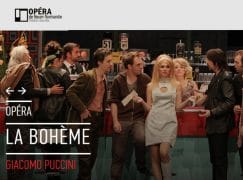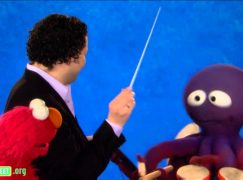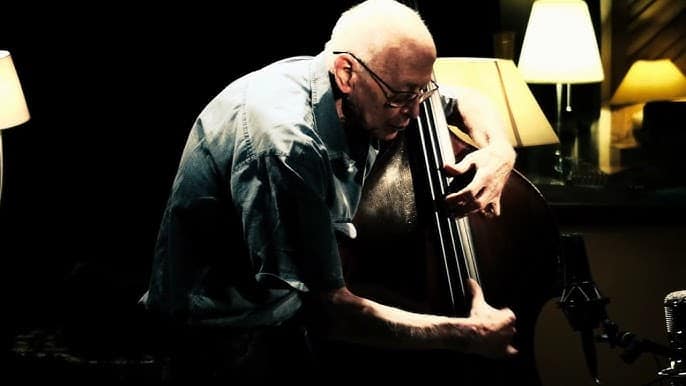Germany’s hottest operas are…
mainThe most performed operas in Germany in 2015-16 have been announced today. They are:
1 Magic Flute – 27 productions, 268 performances
2 Hänsel und Gretel – 26/215
3 Carmen – 21/157
4 La bohème – 20/164

Composers with most productions: 1. Verdi (98), 2. Mozart (93), 3. Richard Wagner (82).
Composer with most performances: 1 Mozart (752) 2. Verdi (684), 3. Puccini (507).





We see that the music which is the most timeless, remains contemporary. Interesting that Mr Mozart continues to have written contemporary opera, while apparently there are no operas in the list, or at the top category of the list, that have been written with the specific aim to be contemporary in mind.
In spite of extensive propaganda and ideological efforts to denounce the audiences’ taste for ‘the old’ as thoroughly conservative and a proof of having no understanding at all of their own time, there are only two possible conclusions left: either classical music audiences are, generation after generation, hopelessly right-wingy conservative and reactionary and inaccessible to progressiveness, or in premodern times composers had a much better understanding of the holistic nature of human perception (the ‘hard wiring’) and innocently followed their holistic instincts while writing music, which was – of course – also supported by the surrounding culture which had its roots in the very same instincts.
Recent research in neuroscience appears to confirm that certain patterns, based upon mathematical proportions – the same proportions that can be seen in nature – are part of how the brain is built and thus, are part of the workings of the mind.
I am curious to know more precisely what recent neuroscience research you have been reading.
He means your brain cannot follow and understand all than tuneless wrong note stuff, weber is ok yes Webern no is boring as hell. It is obvious, tunes have a pattern, the Ode to Joy is a tune, one can follow it but all that wrong note stuff has no clear pattern it is just noise, my Dad’s angle grinder sound better! Mozart has plenty of nice tunes other composers are less tuney it gets worse with Wagner and Bruckner and 20th century!
Here is the article explaining why audience hate modern music. Obvious really, they want a tune, which is in reality actually very difficult to compose, the Pop industry is running out of them rapidly!
http://www.telegraph.co.uk/news/science/science-news/7279626/Audiences-hate-modern-classical-music-because-their-brains-cannot-cope.html
Yes….. often science is, in a cumbersome and elliptical way because it wants to PROVE things, capable of showing, after many years of puzzling, what a perceptive human being gets immediately.
“Mr Ball believes that many traditional composers such as Mozart, Bach and Beethoven subconsciously followed strict musical formula to produce music that was easy on the ear by ensuring it contained patterns that could be picked out by the brain.” It is a bit more complex than this: such ‘old’ music used formal and tonal dynamics which rest on pattern making according to regularity and predictability, and where the music gets interesting, this is where deviations from patterns play around with perception. Say, the difference between G.P. Telemann and J.S. Bach, and between F.-J. Gossec and Mozart, and between Raff and Brahms. Talented but unimaginative composers always follow conventional patterns, are often successful, but their works cannot hold attention for long. Interestingly, many contemporary modernist composers follow the same kind of conventional patterns that were invented in the fifties and sixties of the last century as shocking deviations from traditional music, forming a new predictability opposite of the natural one.
All claims that this or that music doesn’t have any appeal because the brain can’t make sense of it, should have gone out the window after Merzbow started being invited to mainstream festivals and reviewed by mainstream pop journalism. The man – like his fellows in the Japanese Noise scene – plays (literally!) pure noise, and at live performances you can watch audiences go crazy for it. Next to Merzbow, twelve-tone serialism or any other atonal strand of classical music sounds pretty staid and old-fashioned.
Hello Bum Note , I would remove Wagner from your list, I can whistle dozens of ”tunes” from his all of his operas , all the time…..now that is serious brain stuff….
Dear Bum Note and Mario Denis
Bruckner should also be removed from the list – I’ve loved his music since I heard the Scherzo of his Symphony 7 at the age of seven.
Appreciation of art is evolutionary embedded in the same system that works for survival:
https://www.scientificamerican.com/article/the-neuroscience-of-beauty/
The experience of mathematical beauty correlates with activity in the same part of the emotional brain – namely the medial orbito-frontal cortex – as the experience of beauty derived from art or music:
http://neurosciencenews.com/neurobiology-mathematical-beauty-756/
There are certain aspects of art that seem universally appealing, regardless of the environment or culture in which you grew up – indicating that there are universals in the field of aesthetics, i.e. objective standards, however subjectively interpreted:
http://edition.cnn.com/2012/09/15/health/art-brain-mind/index.html
Research indicate that, probably, basic universal aesthetic laws do apply, and that they play a role in our appreciation for art:
https://thesmartset.com/article03161101/
All this confirms Steven Semes’ observations about comparable aesthetic responses to different art forms – a subject which became a major theme in 19th century art, literature and music, the ‘holistic nature of human perception’:
http://www.futuresymphony.org/le-violon-dingres-some-reflections-on-music-painting-and-architecture/
Thank you!
🙂
Maybe it is just that operas like La Boheme and La Traviatta are so much better than the others. That is why the public LOVE THEM. Simple!!!
You have to agree Rossini was right, Wagner does have some wonderful moments, but terrible quarter hours, Bayreuth went bust after the first Ring, Rossini took early retirement on his death, his estate was valued at 2.5m Francs, he had succumbed to pneumonia, but had untreated Clap for years.
Pseudoscience more like. A flakey argument that has to be backed up, unsuccessfully, by this sort of modern-day quackery
‘Ignorance is a precious flower, touch it and the bloom is gone.’ (Oscar Wilde)
Science has its limitations, since it can only investigate what can be proven. The most important things in life, i.e. for human life, cannot be ‘proven’ because they are not about things but about meanings, and are very difficult to subject to repeatable laboratory examinations. But that does not mean they are not there or that they have no meaning. When even science points towards what perceptive humans experience immediately, there is ample reason to have confidence in its reality, as we confer reality to things like justice, love, altruism, etc.
Some strange facts of life have a strong meaning, for example that proportions in nature conform to certain mathematical principles, which in turn can be grasped by the human mind – i.e. in the human mind there is a receptive system of mathematical properties which lay at the heart of natural formation. Just a little of thought reveals that our mind is part of natural evolution and the laws along which it proceeds. This implies that tonal relations in music are grounded in nature, and that the beauty of musical works is related to both how the human mind works, and how nature is structured.
Fredrick, you can’t change the effect of consonance and dissonance on the human perception, there is a certain wiggle room, culturally explored from the monophonic Gregorian chant to the complexity of late tonal music, but once you leave the foundation of our material world, of the universe, of harmony and resonance, of living rhythm and breath, you are in perceptional no-man’s land. It’s an intellectual construct, a sand castle.
Agreed, it was easier when the musical world was full of uncharted territory. Around the fin de siecle that territory was all explored. Since then being progressive means leaving the human foundation of music and become technical. A dilemma, for sure.
Mr Bortslap, there is no need to bore us to death with your various aesthetic theories we can judge what is good and bad in opera for ourselves, Wagner I am sorry to say after attending Bayreuth since 1955 is not only overrated but decidedly passé.
Here is the source of the famous Rossini anecdote regarding Wagner.
In 1881 an issue of the London journal “The Theatre: A Monthly Review” printed an anecdote about Rossini’s reaction to Wagner’s opera “Tannhäuser” when it was performed in Paris in 1861.
A proponent of Wagner’s compositions named Auber encouraged Rossini to attend. Upon the conclusion of the third act he approached Rossini with something less than his usual sprightliness, having observed the master’s countenance to have been distorted by sundry formidable yawns during Tannhäuser’s description of his fruitless pilgrimage to Rome. “Eh bien, maître!” he exclaimed; “qu’en dites-vous? Avouez donc qu’il y-a de bien beaux moments!” “Je ne dis pas non,” replied Rossini, with a cynical smile; “mais il y-a aussi de bien mauvais quarts-d’heures!”
Behause Wagner is passé for you, after over 60 years being exposed to it, doesn’t mean newer generations can’t be enthused about his music. Strange way of thinking. You are not the center of the universe.
My brain can’t cope with hearing these old, old operas anymore. I’ve heard them for over 50 years and that enough! But if it brings people in, that’s fine. Too bad though that all this repeating of the same material shuts out other works people could learn to love, like Schwanda the Bagpiper, The Queen of Sheba, May Night, Notre Dame and some others. I’ve given up ever expecting to hear Fredegundis.
The posturing stupidity of the “knowledgeable classes” is on full display here. It is one of the major reasons that opera will always be an art of the periphery. An art museum, for example, will always have a wide range of art on view. Nobody in that world would write an urgent piece proposing that Van Gogh or Renoir are the only true “masters” and, therefore, there is no reason to show Braque or Morisot. Every year 98% of operas written are not performed to make room for another Aida. Now I agree that Van Gogh is a great artists but to use his fame to exclude other artists from view is something he would find outrageous. Mozart would feel exactly the same.
A refreshing perspective amongst the verbose voodoo littering this post.
But the opera field is the part of classical music where most of new works are being produced. Like the monster production of ‘Babylon’ by Widmann and Sloterdijk in Munich, I believe in 2012, which was a success, in spite of enormous expenses, and the regular productions of Henze, Adams and Heggie. Given the complications and expenses involved with any opera production, not to mention the many different people with their personal idiosyncracies, it is understandable that opera companies are cautious and inclined to rely on ‘safe’ repertoire – which, actually, is made ‘unsafe’ by Regietheater all the time. And then there is the structural problem of writing operas with contemporary aesthetics in terms of music, which does not lend itself very well to the art form: no or distorted singing, absurd plots, awful sounds from the pit, bombardment with political and/or philosophical ideas that have nothing to do with the subject, etc. etc.
Yawn yawn
Probably Boulez is just the right stuff for you.